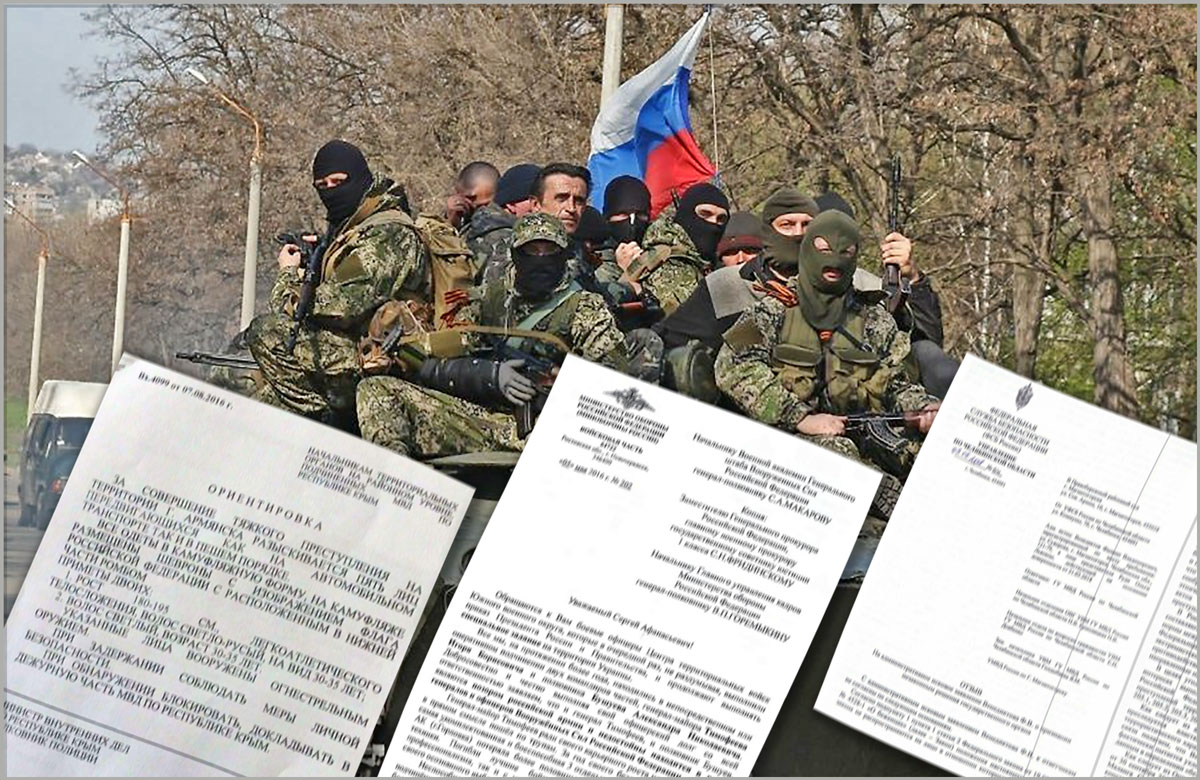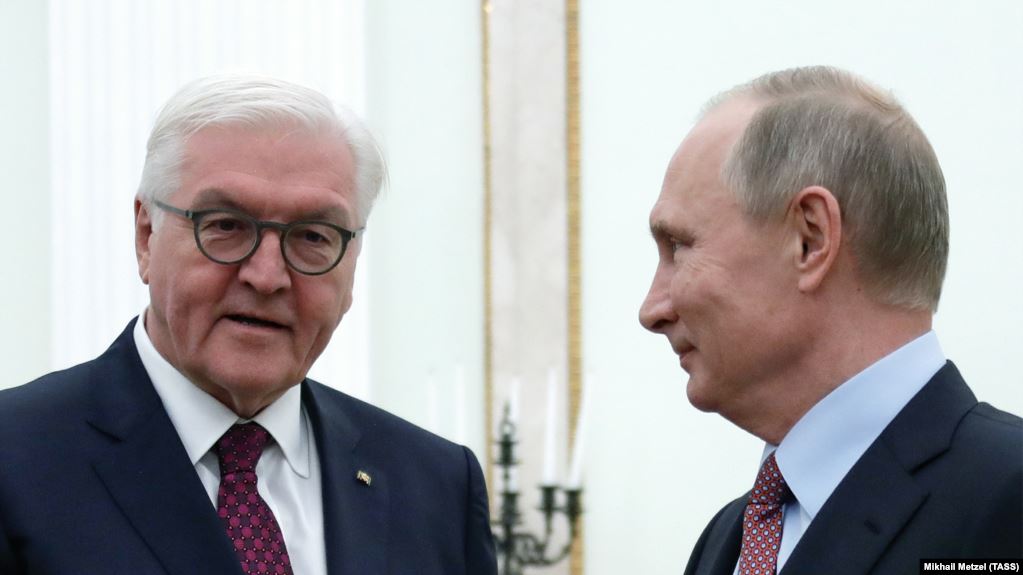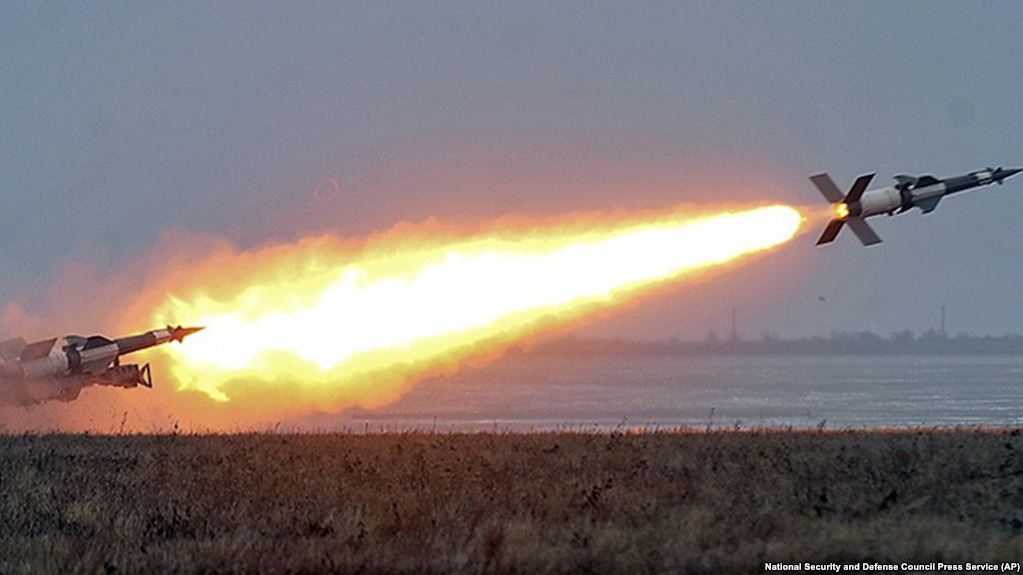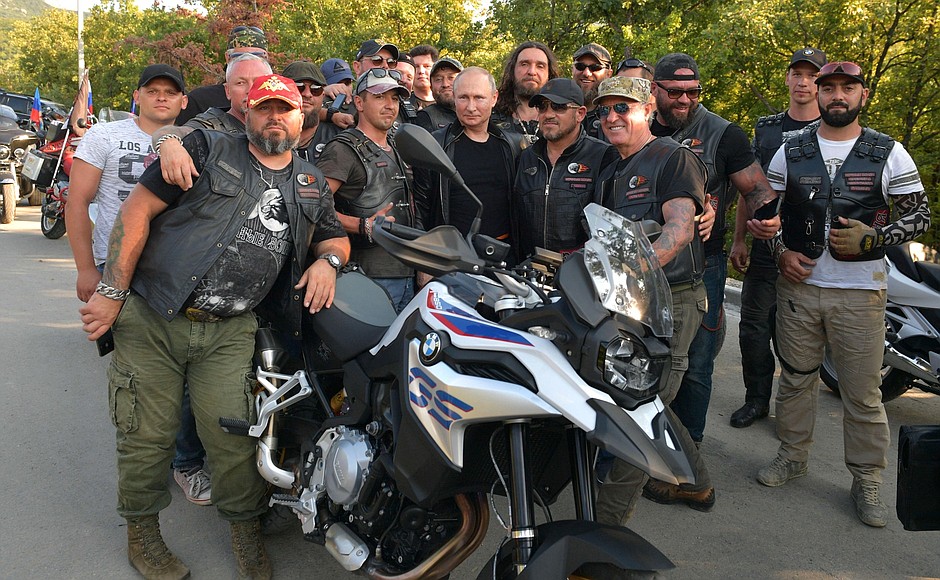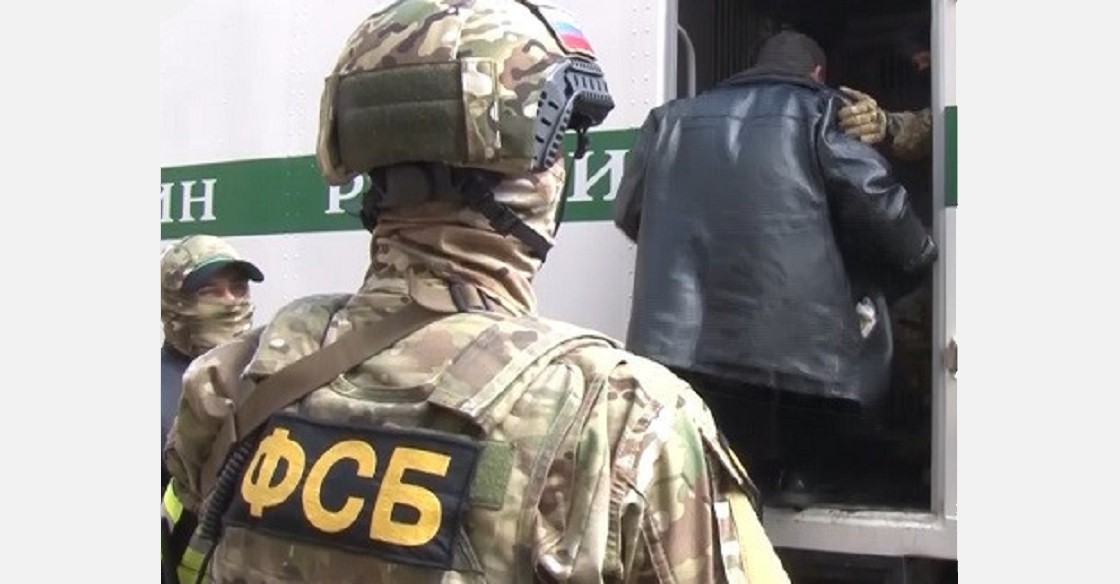Such materials are not necessarily being obtained by hacker attacks, such as, for example, the notorious “Surkov plans” (these plans, which were stolen by hackers, had been compiled by Putin’s adviser Vladislav Surkov and aimed at tearing Ukraine apart.) Sometimes Russian officials themselves post documents on the social network, or military personnel share texts of their own complaints or orders with their friends. Court decisions and forensic examinations also reveal this closely kept state secret in a very amusing way.
I will run through the main documents that I personally came across in the last few years of work. Of course, this is only a drop in the ocean, but they are a graphic illustration of the very characteristic features of modern Russia; moreover, they are official papers and not journalistic articles.
These papers reveal several tendencies.
1. Backing mercenarism in Donbas, interpreting the wording “Moscow occupiers” as “Russians”
Firstly, they show the level of reprisals and ridiculous causes for persecution: the sentences of the Russian courts, indictments and linguistic examinations that became the basis for most of the notorious “repost cases” (persecutions just for reposting a certain text the authorities consider “extremist”). These documents show that expression of an opinion and even knowledge of legislation can lead to a psychiatric examination (the case of Anton Podchasov), and criticism of the authorities is a criminal offense.
Exactly such wording is in the prosecutor’s indictment in the case of Ekaterinburg’s single mother Yekaterina Vologzheninova: the defendant showed a negative attitude “towards the authorities in Russia, towards the political course of modern Russia, towards the President of Russia as the first person and the embodiment of power in Russia” The court excluded from the verdict just the charges regarding personally Vladimir Putin.
No less of a terrible crime is, I quote, “dialogue, that is, an exchange of opinions” and an attempt to persuade other people that one’s point of view is correct – the same indictment shows this. It is especially unacceptable for the Russian authorities if citizens dare to show emotions.
The verdict and the indictment are the actual documentary evidence that the Investigative Committee, the FSB, the prosecutor’s office, and, finally, the courts, fully support and protect the militants and terrorists fighting on the territory of a neighboring country not only from mandatory criminal prosecution but even from mundane criticism. In particular, the prosecutor noted in her conclusion that Vologzheninova “tried to form a negative attitude towards volunteers from Russia who are fighting on the side of the DNR and LNR,” thereby officially demonstrating the positive attitude of the Russian prosecutor’s office towards mercenaries who went to a foreign country to kill its inhabitants. The same wording is in the indictment based on the materials of the FSB, where Yekaterina was accused of “inciting hatred and enmity towards the authorities in modern Russia, towards volunteers from Russia fighting on the side of the militias from eastern Ukraine.”
2. Revealing details of the stay of Russian troops in Donbas

Secondly, some documents show not only the presence of Russian troops in the Donbas but also some juicy details of their stay there. Here is, for example, a document that was given to me by certain trustworthy sources in the spring of 2016. It contains the appeal of several Russian military personnel to the head of the Academy of the General Staff of the Armed Forces of the Russian Federation (with a copy to the Deputy Prosecutor General and Head of the Personnel Directorate of the Defense Ministry) about the inappropriate behavior of the commanders of the aggressor country troops, Timofeev and Bushuev.
The text of the letter begins with the words:
“The military officers of the Center of the territorial troops of the Southern Military District, who once again, without hesitation, executed the order of the President of Russia and the Government, and continue to carry out a special task on the territory of Ukraine… While carrying out our duty as officers, we declare with all responsibility that both General Timofeev and Colonel Bushuev are a disgrace to the Russian army and are not worthy to be in the ranks of the generals and officers of the Armed Forces of the Russian Federation.”
The authors describe quiet affectingly how, for the sake of career growth, Timofeev “walked over the corpses,”
“During the year of his incompetent command, the most equipped and efficient 3rd separate motorized rifle brigade 1 AK (city of Horlivka) lost more than half of its personnel and 35% of military equipment. Those who died were the best fighters, from the point of view of military professionalism, as well as their patriotism and belief in their conscious choice of fighting in order to join Donbas to Russia,” the occupiers complain.
Also, Timofeev is accused of leaking information about the real personal data of the professional officers of the Russian army and their relatives.
“In turn, Colonel Bushuev, who became a laughing stock for the whole world because of his natural stupidity, arrogance, laziness and unrestrained drunkenness. Bushuev’s foolishness while serving in internal districts, mocking his subordinates and symbols of statehood in Russia (the famous performance of the anthem in gas masks), while performing a special task in the Ukrainian Donbas, was supplemented with numerous examples of his carelessness and ineptitude,” the text says.
Further, the authors confessed that “for more than a month this ‘commander’ was actually under house arrest since we could not entrust him with command of the troops, and he had to sober up after a drinking bout.”
In addition to the casualties in the battle, these generals had on their record “four BMPs drowned at the training site,” “the lost UAV actually given to the Ukrainian military,”, and some “cowboy stories of hijacking the armored personnel carrier of the local defense minister;” unfortunately, these stories are not presented in the document in more detail. In short, the letter is a solid piece of evidence of the Russian presence in the Donbas.
3. Refuting Russia’s false allegations
Third, some documents are extremely serious in nature, and they help to refute and prevent any provocations from Russia. For example, in August 2016, the Kremlin, for the first time, used fake charges against the so-called “Ukrainian saboteurs.” They were accused, firstly, of shooting at the border of the occupied Crimea, and then in preparing terrorist attacks on the peninsula. Ukrainian military experts, not without reason, feared that this provocation could be used to justify the new round of Moscow aggression, this time from the occupied Crimea. Therefore, to debunk this lie in the eyes of the world community at that time seemed extremely important.

That is why it’s impossible to underestimate the evidence confirming that drunken contract servicemen, and not “Ukrainian saboteurs,” staged a shooting on the border of the occupied Crimea. These documents were posted on Facebook by Eduard Zhuravlev, the adviser of the former “governor” of Sevastopol Sergey Menyaylo, with this addition:
“With regards to what really happened during yesterday’s border skirmish. The game continues. Somehow at the intuitive level I more and more agree with the version that the military contractors, overheated in the sun and after too much liquor fired on their comrades and went AWOL with weapons illegally.”
Zhuravlev offers a curious document – a photocopy of the orientation which was circulated to the heads of regional departments of the Ministry of the Interior in the occupied Crimea on August 7th. The document refers to the search for five people accused of a serious crime in the city of Armiansk “dressed in camouflage uniforms bearing chevrons with the Russian Federation flag.”
4. Recognizing “militants” as terrorists
Fourthly, one more document can serve as a conclusion of this brief “tour” of the Russian documents. I mean recent feedback of the UFSB in the Chelyabinsk region in the case of the “DNR militant” Philip Venediktov who bears a touching nickname “Filya.” The Russian court, and then the FSB, recognized “Filya” as a terrorist, having agreed with the arguments of the [Ukraine’s security Service] SBU, and on this basis refused to grant him temporary asylum.

“As follows from the administrative claim, F. Venediktov was prosecuted by the authorities of Ukraine for the commission of a crime of a terrorist nature (Part 1 of Article 258-3 of the Criminal Law of Ukraine). In this regard, we believe that F.V. Venediktov, wishing to receive temporary asylum, is actually trying to evade criminal prosecution, and not on the grounds given in the definition of “refugee” of Article 1 of the Law,” the text of the feedback says.
Of course, in itself, the recognition of a terrorist as a terrorist is highly commendable, but it seems that the motives of this action are not repentance to Ukraine and not a desire to follow the laws or provide assistance to colleagues from the SBU. Judging by indirect signs, the return from Donbas of those who tasted blood, who got used to killings and were disappointed by the lukewarm help given by Moscow to the militants became a serious problem for Russia at this moment. Russian security officials are not happy even with their own citizens who have returned from the war unleashed by these officials, and especially they are not going to let the wounded and angry radicals with Ukrainian citizenship enter the territory of Russia. The easiest way to get rid of “Filya”, who survived in the Donbas to the displeasure of his masters, was the reference to the Ukrainian laws, which he repeatedly violated.
However, the humor of the situation is that, if you follow the logic of the Chelyabinsk FSB, the aforementioned General Timofeev and Colonel Bushuev, as well as all those who signed the complaint against these “valiant” commanders, should also be recognized as terrorists. And, on the contrary, an expert Mochalova, from the Sverdlovsk region, which is neighboring Chelyabinsk, should immediately recognize her Chelyabinsk counterparts as Russophobes who “incite hatred towards volunteers fighting on the militia side in the east of Ukraine.”
Read on evidence of Russian aggression in Ukraine:
- What we know about Russia’s active duty soldiers captured in eastern Ukraine from 2014
- New footage shows Russian PMC Wagner involved in crucial 2015 Debaltseve battle in Ukraine
- Ukrainian OSINT sleuths release largest existing database of evidence of Russian aggression in Ukraine
- Russian celebrity tank commandress defects to Ukraine, leaks details on Russian involvement in occupied Donbas
- OSCE drone films Russian trucks entering Donbas at night
- Hacked military docs reveal how the Russian 18th motorized brigade invaded Crimea
- What we know about Russian troops in eastern Ukraine
- Bellingcat publishes interactive map of Russian artillery strikes across Ukrainian border
- Seven reasons the conflict in Ukraine is actually a Russian invasion
- After the Glazyev Tapes: what Moscow’s interference in Ukraine means for the Minsk Agreements
- Russian involvement in Ukraine’s Donbas “republics”: 10 things you should know
Read also:
- Who is who in the Kremlin proxy “Luhansk People’s Republic”
- Who is who in the Kremlin proxy “Donetsk People’s Republic” (2017)
- 12 facts about the Donbas that you should know
- With Donbas occupation, Russia brought religious persecution alien to Ukraine: report
- Far right and left, conspiracy theorists among “foreign monitors” at Russia’s sham elections: Report
- Moscow increasingly acknowledges it controls Donbas regimes, Kirillova reports
- Don Cossacks reinforcing Russian & local troops in the Donbas
- Three assumptions about the Donbas
- Russian puppet “LNR” opens “consulate” in Sicily and other overlooked stories
- From Donbas to Syria: investigation reveals Ukrainians fighting in Russian PMC Wagner
- Hot war still on in Ukraine’s Donbas, and it’s far from frozen conflict
- Martial law ended in Ukraine, but not Russia’s military buildup near the border

